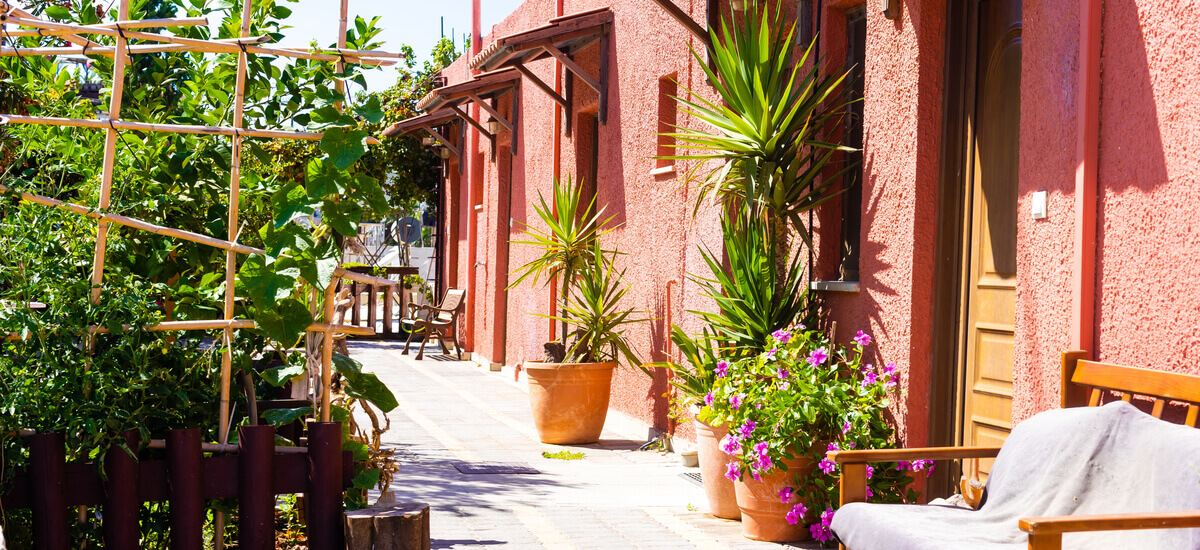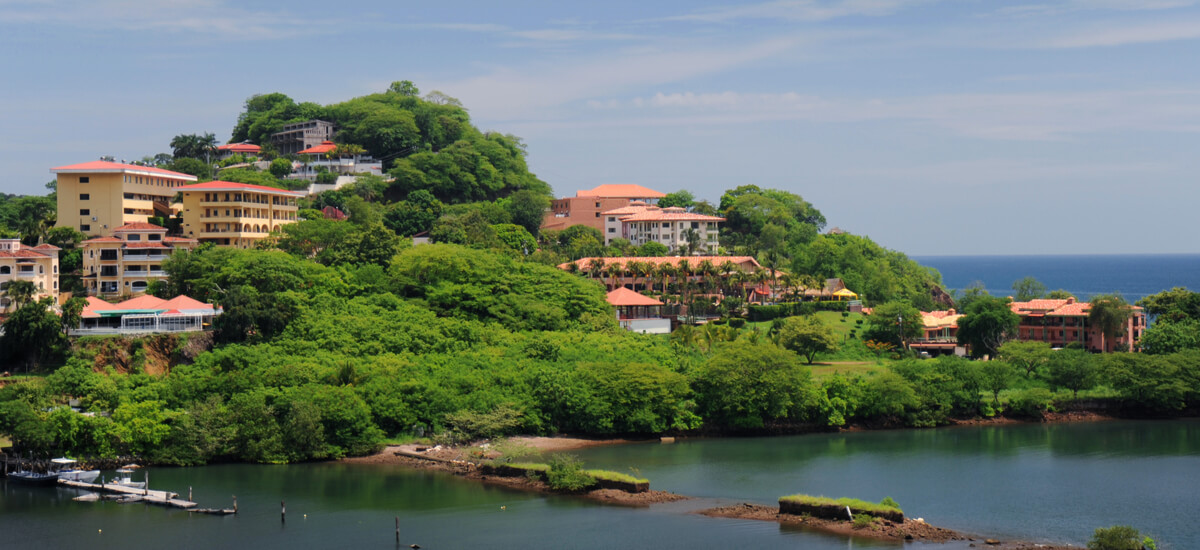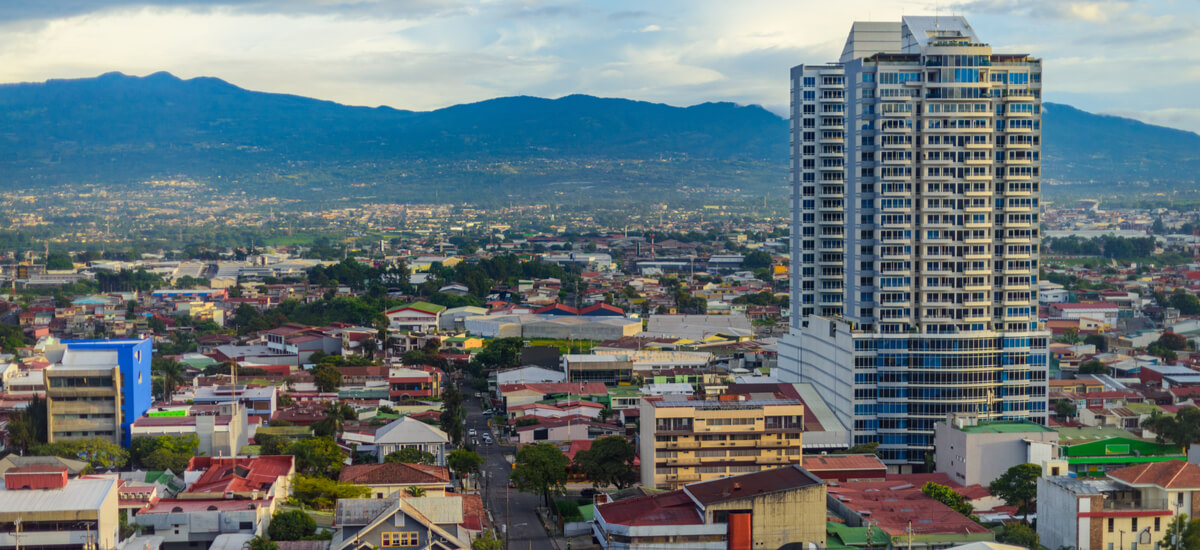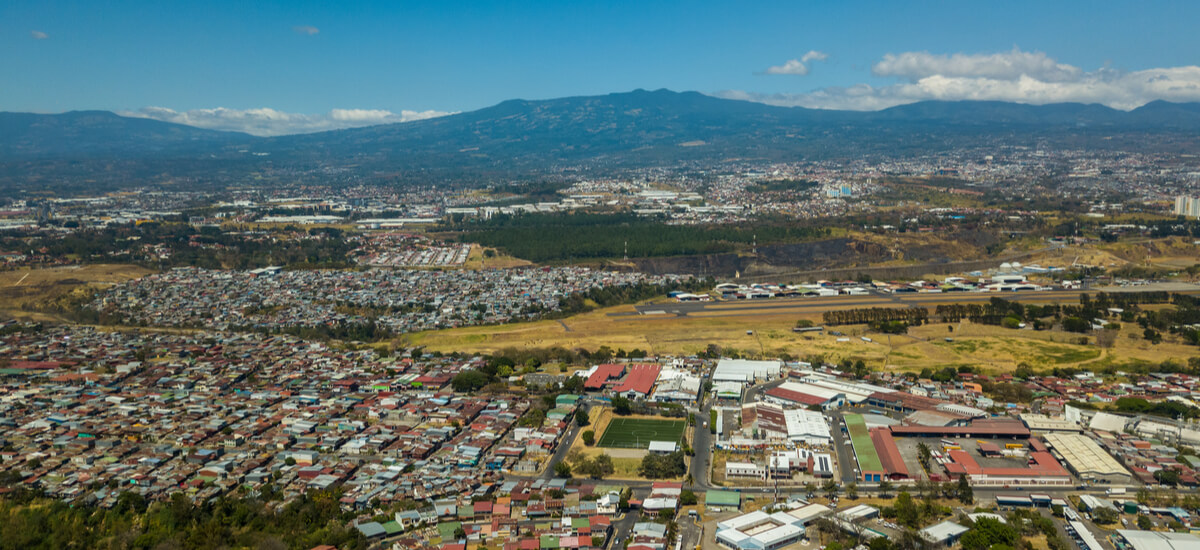How much is a security deposit? 2025 guide
Everything you need to know about security deposits

If you’ve fallen in love with Costa Rica and are planning on relocating or retiring there you might be wondering about how to buy property in Costa Rica as an American.
This guide covers all you need to know about Costa Rica real estate including what you can buy, the best places to look at and the risks to be aware of.
We’ll also touch on how Wise and the Wise Multi-currency Account can help you cut the costs of currency conversion and international payments when buying property in Costa Rica.
Costa Rica has long been a favored destination for Americans to visit, live, vacation and retire. This popularity — alongside relatively strong infrastructure, friendly people, great weather and beautiful natural scenery — has created a strong market for houses in Costa Rica, with many foreign buyers from the US and Canada getting in on the action.
Like most markets around the world, Costa Rica real estate has had its ups and downs. However, the global pandemic has caused a steep rise in prices, especially of larger and beach front properties. This is largely a result of both local and foreign families looking for bigger places with more space to sit out lockdowns and covid-related restrictions¹.
While this spike in the market is great news for anyone who has already invested, it does mean that people who are looking for Costa Rica housing in 2022 may need to increase their budget or be prepared for a longer search for the right place.
On to the most important question: can Americans buy property in Costa Rica?
The good news is that US citizens can buy most property in Costa Rica without restriction. The main exceptions are in certain areas known as Maritime Zones, which are directly onto beachfront areas, and considered public land.
Here foreigners can only own up to 49% of property through corporation (the equivalent of an LLC), and may need to seek advance permission before making a purchase.
Once you’ve found a perfect Costa Rica property — and checked it can legally be purchased by a foreigner — you’ll be able to buy it with relatively little hassle. You don’t need to be a resident of Costa Rica to buy real estate, which makes it a popular place to pick up a rental property as an investment, as well as somewhere to move to full time.
It’s important to note that the property market in Costa Rica isn’t as regulated as in the US. This means you need to complete thorough due diligence checks and work with trusted agents to make sure you don’t fall victim to any scams or dodgy schemes. More on that in a moment.

Buying a property in Costa Rica will be exciting — but it’s important to carry out full due diligence and work with trusted local partners to avoid any problems. Here’s an outline of the process.
You pretty much can’t do without a good realtor when buying a home in Costa Rica. Ask around to get recommendations, and draw on your personal network to find someone you click with.
Many Costa Rica realtors have extensive experience of working with expat buyers, and can help Americans negotiate the process of buying a home abroad. However, there are also plenty of less scrupulous agents — so shopping around is a must.
Once you know where you want to buy it’s time to start viewing properties. We’ll cover a few of the best places to buy property in Costa Rica a little later. The good news is that you’ll be spoiled for choice!
Once you’re narrowing down the search it’s worth carrying out a few checks yourself, including visiting the property as much as you can at different times.
Many expats who have already purchased a home in Costa Rica also advise checking out the property in the rain to make sure there are no structural challenges. You may also be able to ask for more details of the home’s energy consumption and regular maintenance costs to help you budget.
Once you’re certain on the property you want to buy you’ll need to find a real estate attorney to help you move the process on. Choosing an attorney who is also a Notary Public is a good move, as that could make it easier to register the sale in the end.
As with anywhere you’ll now need to agree a sale price and have your attorney write up a formal offer. Expect some back and forth over the price — especially in today's buoyant market.
Your attorney will be able to guide you through the due diligence checks you should get. A title search is essential to make sure the property can legally be sold. But you’ll probably also want to have structural checks carried out to make sure the property is in a good state.
Once you’re happy it’s time to pay your deposit — usually around 10% of the agreed sale price. Consider sending your payment with Wise and the Wise Multi-currency Account to cut the costs of currency conversion.
It’s common to take a month or two to move the sale to closing. At this stage your attorney will be able to register your purchase if they’re a Notary Public themselves — or you can work with a third party to complete this step. Pay the remaining property price, closing and legal fees and you’re done.
| Read further: opening a bank account in Costa Rica |
|---|
Now that we covered all the basic costs of purchasing your dream home in Costa Rica, the only question left is: how to send money to pay for your property overseas?
Wise offers you a quick, secure and transparent way of sending money to Costa Rica. You get the mid-market exchange rate for your payments and see how much it’s charged for the transfer before sending the money from your bank.
With the Wise Multi-currency Account you can also hold, send and spend money in over 50 countries, and receive like a local in 10 different currencies.
Send money to Costa Rica
in just a few clicks 💰
Property prices, as well the cost of living in Costa Rica, do vary widely based on the type of property and the specific location. You’ll be able to get a good idea of the average costs for the type of place you’re looking at by browsing real estate websites.
Pick one with a good search function to be able to narrow down your options and start to build a picture of what’s available in your budget and preferred locations.
We’ll look at some of the best places to buy property in Costa Rica as an American in just a moment. As a starting point here are the average costs for some key cities, as collected by data aggregator site Numbeo.
| Location | Apartment in city center (m²) | Apartment outside city center (m²) |
|---|---|---|
| Tamarindo² | 2,384.65 USD | 1,918.63 USD |
| San José³ | 1,854.22 USD | 1,354.67 USD |
| Santa Ana⁴ | 1,982.77 USD | 1,742.80 USD |
*Data correct at time of research — 5th April 2022
Your real estate attorney and agent will be able to walk you through the costs involved in buying a property in Costa Rica. However, having some advance warning is always helpful. Here’s a rundown of the key costs usually involved in buying a place in Costa Rica:
| Fee type | Percentage cost for buyer⁵ |
|---|---|
| Real estate transfer tax | 0.75% |
| Documentary stamp | 0.18% |
| Notary fees | 0.5% - 1% |
| Residential property register stamp | 0.45% |
| Real estate agent fee | 2.5% - 5% |
| Exchange rate | Variable |
It’s worth noting that the total costs in the property sale process are usually pretty evenly split between the buyer and seller — that means you’ll need to pay similar fees when you come to sell your Costa Rica property in future.
|
|---|
Buying a property is a big deal — and can feel like an even bigger challenge when you’re buying a place in a new country. Before you hand over any money you’ll need to make sure you’ve done a good deal of research to make sure the place you pick meets your needs and your budget. Here are a few things to think about.
When you’re buying property in Costa Rica the first thing to know is whether it’s titled land — also called fee simple — or concession land. Titled land means you can own the property as a foreigner and have broadly the same rights as a local owner would. You can own the property in your own name or through a corporation — similar to an LLC.
Concession land — which covers a lot of beachfront property — is more restricted. Essentially land under this option is leased from the government for a set period of time — often 20 years. Foreigners can not buy concession land outright, but can acquire up to 49% of the shares of a corporation with concession rights.
Once you’ve determined the legal basis of the land or property you’re looking at you’ll be able to choose from a broad range of properties including villas, city apartments and jungle hideaways.
When buying a property in Costa Rica you’ll want to pay careful attention to the condition and structural integrity of the home. Construction standards do vary widely — and as Costa Rica has some extremes of weather you’ll want to be sure your new home can stand up to heavy rain, and stay cool in the heat of the day.
Some expats who have already bought places in Costa Rica advise on investing the time to view any property you’re interested in at several different times in the day and night to get a feel for the area, as well as taking a look at how it performs in heavy rain to make sure there are no problems there.
Flood risks increase if you’re buying a place near a water source — and can be extremely dangerous and destructive. You’ll be able to check for obvious signs of flood damage when you visit a property, but it’s worth thoroughly researching the area and asking questions about any previous issues to be sure.
Getting a survey on the property you’re buying might not be an absolute requirement — but it’s certainly a smart move and can help you spot any oddities or problems which could result in high repair bills down the line.
When researching for property to purchase, you may run into sellers — or even agents — who look to overcharge foreign buyers on the assumption that they won’t know fair market value for a particular property.
This can be resolved by working with a SUGEF registered agent. SUGEF (Superintendencia General de Entidades Financeiras)⁶ is a government branch dedicated to overseeing financial institutions. Trustworthy realtors should have a registration with them.
Another relevant step which you can take to check the reliability of the agency or agent you chose is to ask whether they belong to associations like NAR (National Association of Realtors)⁷, CCCBR (Câmara Costaricense de Corredores de Bienes Raices)⁸ or CRFGAR (Costa Rica Global Association of Realtors)⁹.
These basic steps can be important in the long term, so you avoid falling victim to scams.
The property market and the property purchase process in Costa Rica isn’t as highly regulated as it is in the US. That means there are risks you’ll need to be aware of — and it also means it’s crucial to get the support of both a real estate agent and attorney who are experienced in the local market and also with foreign buyers.
Common issues include people trying to sell expats property that can’t legally be sold to them — either because they don’t actually own it or because it’s on concession land. Your real estate attorney will complete a full title search to make sure they understand the legal position of the property before you go ahead with the deal.
Other problems can often be mitigated by carrying out full due diligence checks before you leap into a property purchase. Make sure you’re really clear on the condition of the home, and you’re comfortable with any flood risk. Check you know what the microclimate in the specific area is like — finding a perfect place which has higher than average humidity may be a problem if you can’t stand the heat.
And get your structural survey done to be confident your new Costa Rica property can stand up to the small earthquakes which occur frequently in the country. Then you can relax in the knowledge that you’ve bought your dream home rather than worrying about potential future headaches.
| Further reading: is Costa Rica safe? |
|---|
Costa Rica is home to vibrant cities and sleepy beach resorts, tropical jungles and stunning national parks. In short, you’re not going to struggle to find the right location for you, based on your personal preferences. Here’s a rundown of a few top expat picks, and what makes them popular.

In the Guanacaste area, on the northern Pacific coast, Tamarindo is one of the most popular places in Costa Rica for foreign real estate investors.
The region is home to a series of beautiful beach locations — so if Tamarindo doesn’t have the right vibe for you you can always check out another local town to find your perfect fit.
Due to its popularity, Tamarindo is one of the more expensive places to buy property in Costa Rica — but also considered a fairly sound investment location.

San José is the capital of Costa Rica, and so a common place for expats to look to buy property. There are lots of different neighborhoods which offer a different style of living — suburb Escazu is especially recommended if you’re looking for a trendy place with great amenities.
You’ll find good infrastructure, medical facilities and schools, as well as malls, fine dining restaurants and golfing options. Plenty to keep the whole family busy.

Santa Ana is a safe town which combines tradition and modern facilities. It’s only a short drive to San José, but offers a more peaceful option when you want to get away from the buzz.
You’re also about an hour to an hour and a half drive to the beach when you’re looking to kick back and relax. As an affluent and popular location you’ll also find a great range of real estate options which are popular with both local buyers and expats.
So there you have it — our full guide to how to buy a property in Costa Rica as an American. No matter whenever you’re looking for a city home or a coastal retreat, and whether you’re planning to move to Costa Rica full time, or buying for vacations or as an investment, you’re in for an adventure.
Enjoy the process of finding your dream home in Costa Rica — and remember, when it comes to the time to pay for your property, use Wise and the Wise Multi-currency Account to cut your overall costs and save on international transfer fees.
Sources:
Sources checked on 04.22.2022
*Please see terms of use and product availability for your region or visit Wise fees and pricing for the most up to date pricing and fee information.
This publication is provided for general information purposes and does not constitute legal, tax or other professional advice from Wise Payments Limited or its subsidiaries and its affiliates, and it is not intended as a substitute for obtaining advice from a financial advisor or any other professional.
We make no representations, warranties or guarantees, whether expressed or implied, that the content in the publication is accurate, complete or up to date.

Everything you need to know about security deposits

Learn all about different ways to get an overseas property mortgage as an American and gain unique insights to prepare yourself for the whole process.

Get a full overview of the best property management software systems for small landlords to easily track and manage their overseas property.

How to buy your first rental property overseas? Here's a detailed guide that can help you understand the challenges and steps for making an investment.

What are the best property management software systems for managing student housing? Take a look at our list and choose the most suitable option for you.

Are you thinking about making smart property investment decisions and wondering how rental yield is calculated? Have a look at our guide to find out.